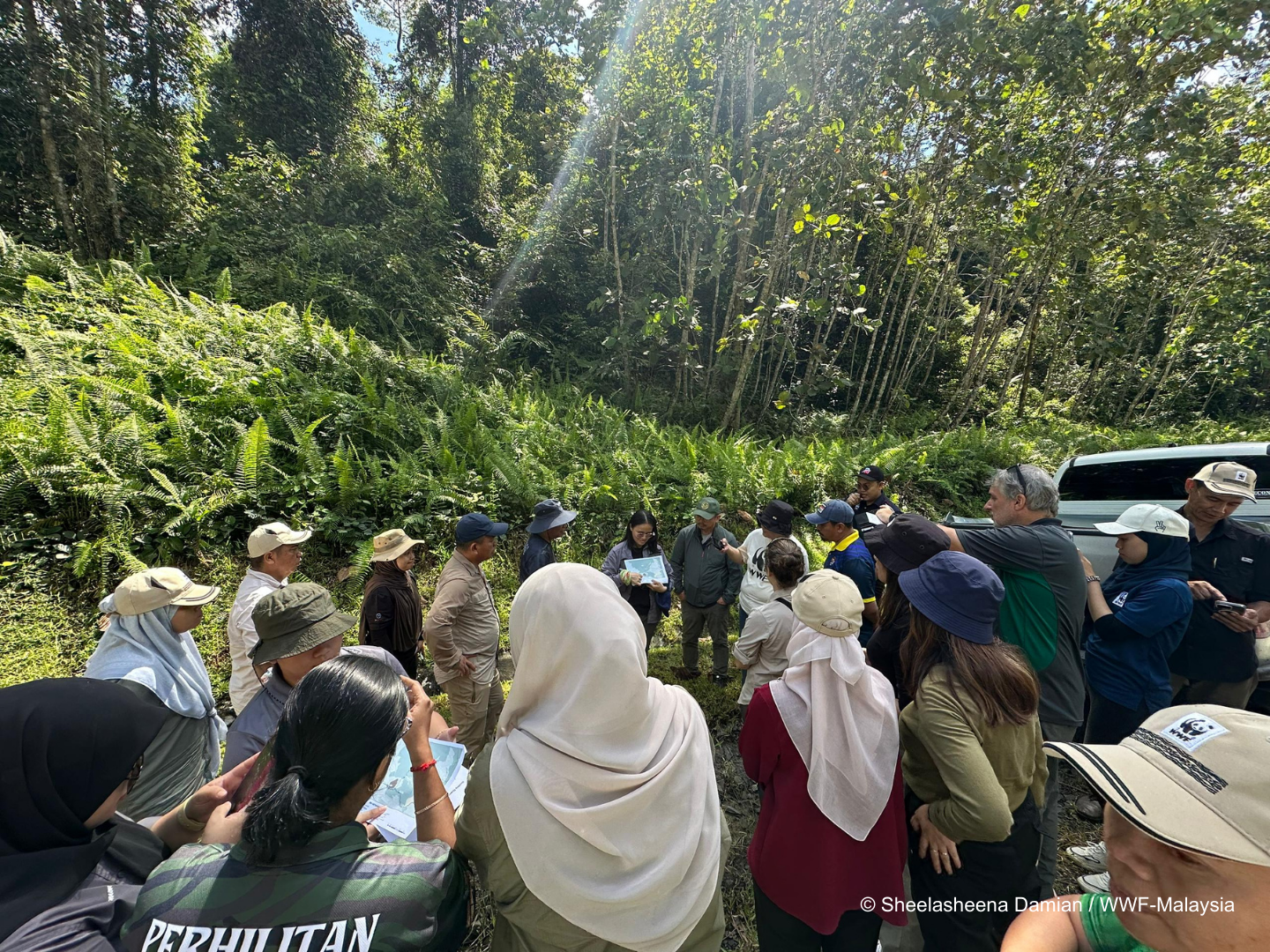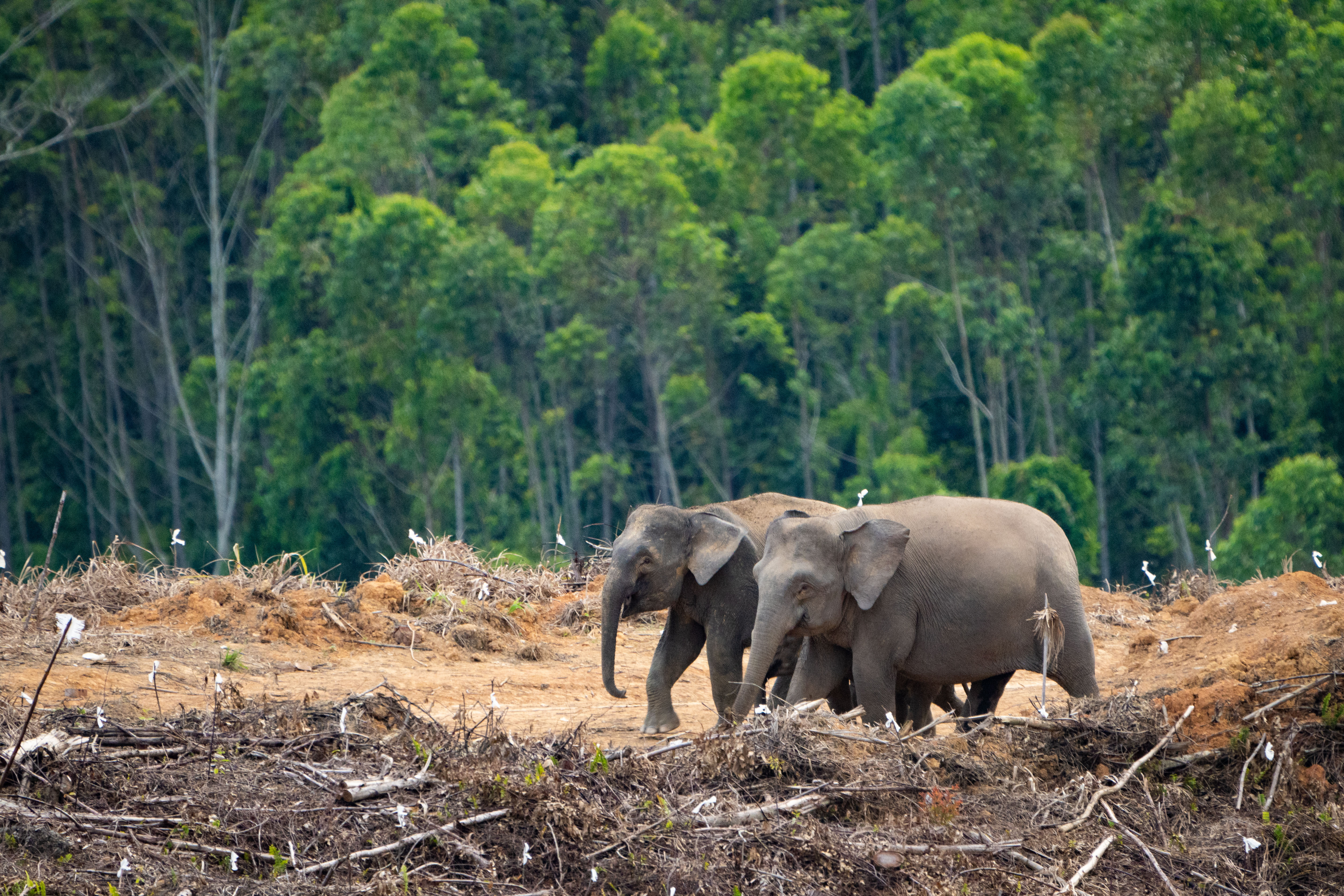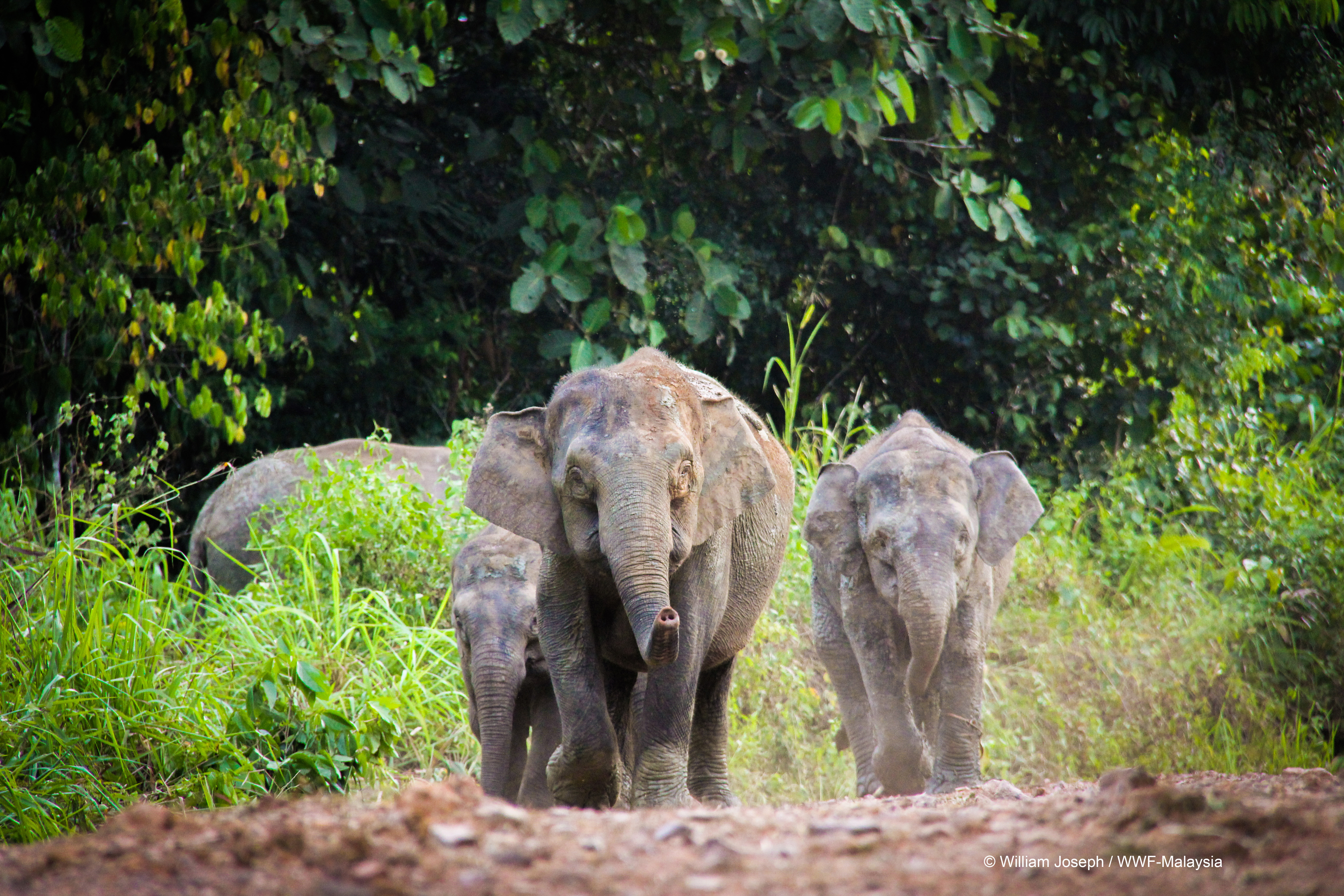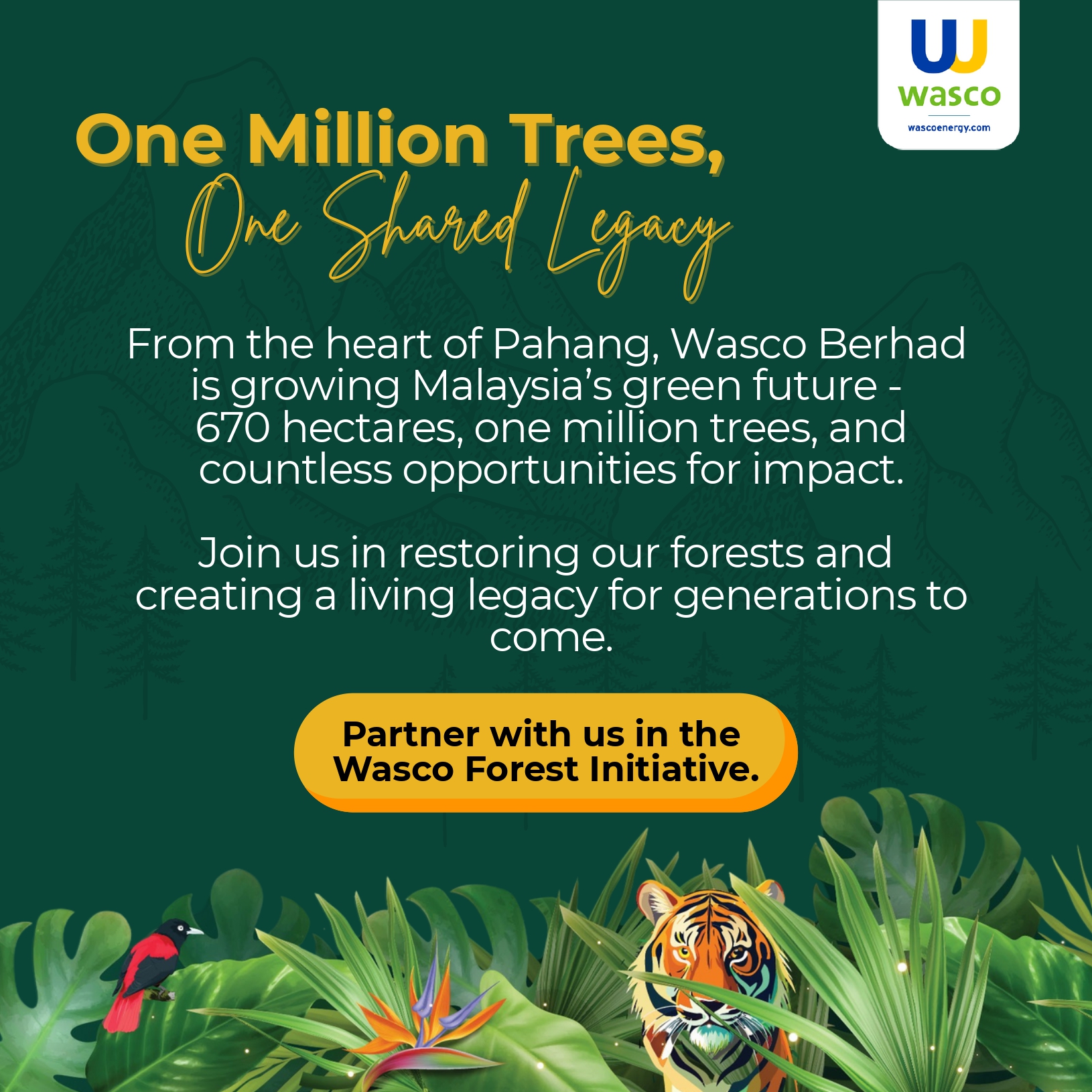Sabah’s Bornean elephants are running out of room to roam. As forests shrink and fragment due to unsustainable development, these gentle giants face growing risks to find food, water, or stay with their herds.
Wildlife corridors are their lifeline. By reconnecting fragmented habitats, these safe passages help Bornean elephants move freely across the landscape — a critical step for their survival, especially with fewer than 1,000 left in the wild in Sabah.
Encouragingly, momentum is building in Sabah. A landmark workshop held in Maliau Basin in May 2025 brought together 46 participants from 15 agencies and organisations to ensure that future road development, including Phase 3 of the Pan Borneo Highway, is planned with wildlife in mind. Co-organised by the Sabah Wildlife Department, WWF-Malaysia and partners, the workshop introduced practical tools like the Handbook to Mitigate the Impacts of Roads and Railways on Asian Elephants and fostered cross-sectoral collaboration on sustainable infrastructure.

(©Sheelasheena Damian/ WWF-Malaysia)
“With Phase 3 of the Pan Borneo Highway still under planning, we have a critical opportunity to design infrastructure that coexists with our wildlife and forests,” said Mr Mohd Soffian Abu Bakar, Director of the Sabah Wildlife Department. “We must learn from past mistakes, such as in Phase 1B, where the highway alignment was finalised before biodiversity concerns were fully addressed, resulting in a route that cuts through the Tawai Forest Reserve, a Class I Protection Forest.
In Malaysia, establishing wildlife corridors, particularly in areas where roads divide elephant habitats, could significantly reduce fatal vehicle collisions with elephants.
Every connection counts — not just for movement, but for survival.
Wildlife corridors allow elephants safe access to food, water and shelter. They facilitate the movement of herds between fragmented forests, which indirectly reduces conflict with people, and help populations stay healthy and genetically diverse.
By keeping these paths open, we’re not only protecting a species — we’re safeguarding the future of our forests, where wildlife and people can thrive together.


Urgent Conservation Efforts
WWF-Malaysia is committed to conserving our Bornean elephants through a multi-faceted approach that includes:
- Tracking elephant movements using satellite collaring and spatial analysis to identify key habitats, understand movement patterns and inform land-use planning.
- Restoring and connecting habitats by establishing wildlife corridors and enrichment planting to support safe movement and access to food across fragmented forests.
- Reducing human-elephant conflict and fostering coexistence with elephants by working with communities, landowners and plantations to co-develop early warning systems, improve fencing and promote elephant-friendly practices.
- Collaborating with government and NGOs on wildlife surveys, research and capacity building to strengthen protected area management and ecological networks.
- Enhancing protection on the ground through stronger enforcement of conservation laws, anti-poaching efforts and ongoing support for rangers and enforcement agencies.
- Applying long-term monitoring and knowledge-sharing to support adaptive management and ensure science-based conservation strategies.
If your company would like to support WWF-Malaysia’s elephant conservation efforts, please write to corporaterelations@wwf.org.my









































